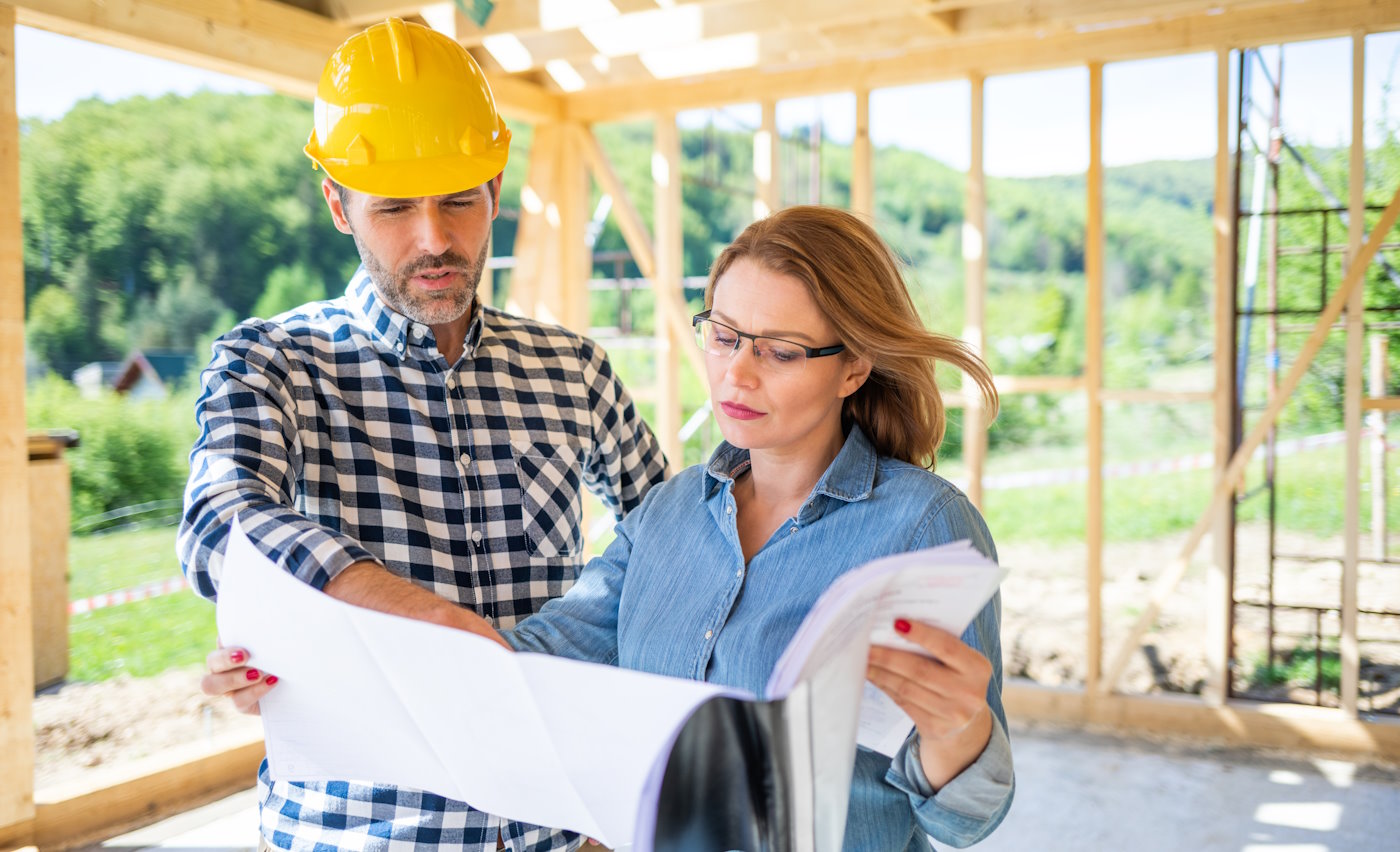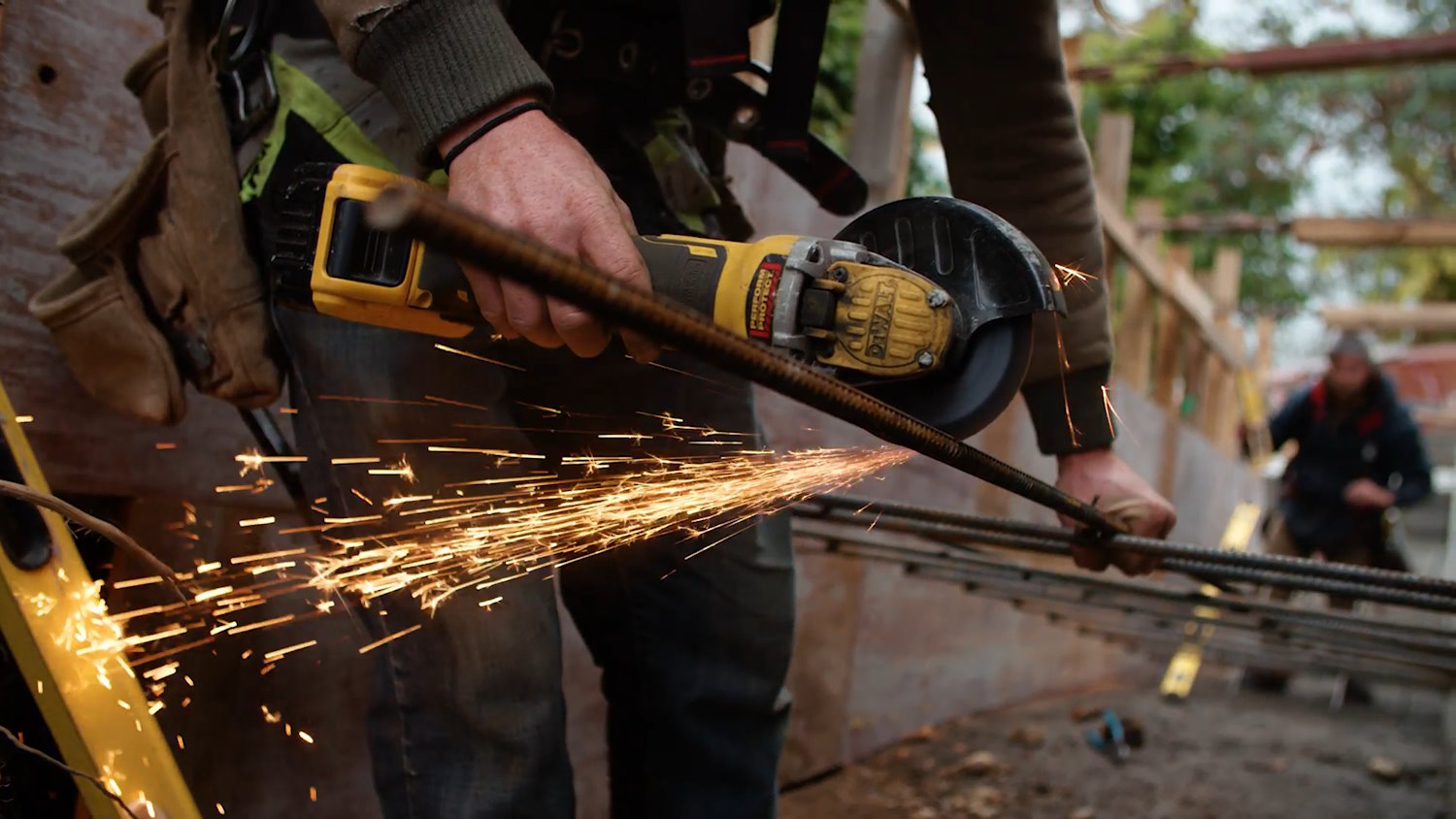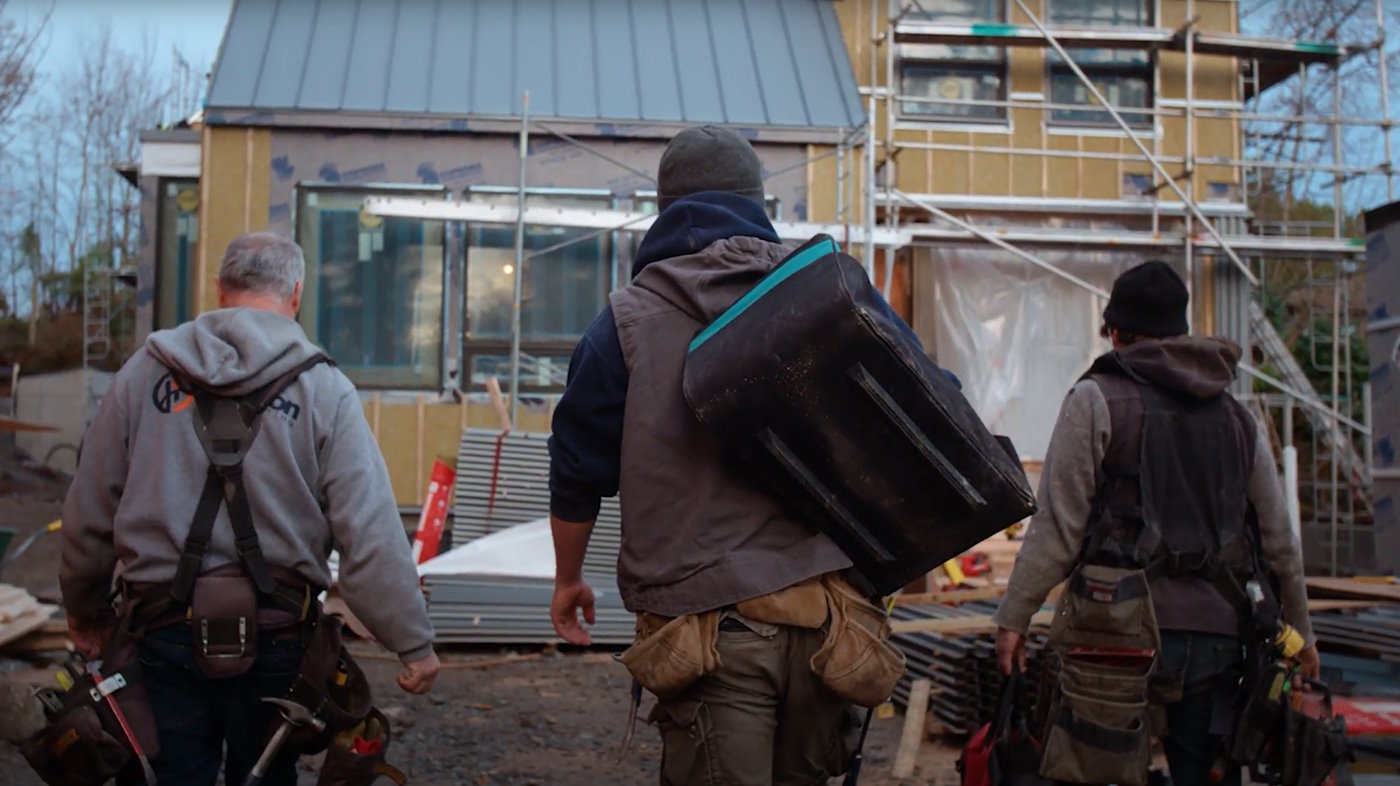Having built hundreds of custom homes across Victoria BC over the past 30 years, we want to be upfront with you: Building a custom home isn’t likely to be fun. But if you have a great builder, it definitely makes it easier.
Some custom home builders will claim to have sophisticated systems, processes, and tools designed to make your experience seamless and stress-free. However, these systems are simply the cost of entry to your new home construction. In the big picture, they don’t affect the project nearly as much as you think. They may reduce some common sources of builder-client friction — such as late design changes — but they certainly won’t guarantee a positive reaction when you see the impact of these items on your budget.
Great home builders operate like orchestra conductors who effortlessly direct every detail of the project to bring your vision to life. They wrangle together architects, suppliers, tradespeople, city inspectors, and even inconvenienced neighbours all at the perfect times, ensuring everything runs smoothly and stays within your timelines and budget.
Choosing your home builder should involve both rational (do they have a proven track record?), and emotional (are you inspired by their work and references?) elements. After all, this isn’t just a business relationship—it’s a partnership. For the next year or more, your builder will help you make countless important decisions, solve unexpected challenges, and turn your ideas into reality. That’s why the “perfect” builder for someone else may not be the right fit for you.
Follow these nine project-saving steps to find your ideal contractor to bring your custom home to life with confidence.
1) Do your homework

Before you start meeting with builders, it’s important to have some honest conversations with yourself about expectations.
What kind of budget are you comfortable with? Are there certain non-negotiables such as specific exterior finishes, wood-burning fireplaces, or a custom front door? The more your builder knows at the outset, the better they can assess the needs of your project. And you can better assess if they are a good fit for you.
Homeowners come to a builder at various stages of their project. Some have hired an architect, some are looking for an architect referral. Some have a vague idea while others have the house mapped out in their mind. The earlier your builder is involved in the process the better all the players will work together as a team to bring your dream home to life.
2) Get relevant referrals

Referrals are a fantastic way to find potential builders. It’s like getting a review from someone who’s been there, done that. But a glowing recommendation doesn’t always reveal the whole story. A builder could be a dream come true for one homeowner and a nightmare for another. Referrals are a starting point, but doing some detective work can help you find your builder match.
At Horizon Pacific Contracting, we recommend seeking out at least three referrals from people who have trusted the prospective builder with their own homes. “Those past clients can give first-hand commentary on how that builder managed their project, how they handled any challenges that arose, and, most importantly, what value the builder added,” says Tim Agar, one of Horizon’s senior project managers. “These clients can give you invaluable insight into important aspects not in their portfolio like communication style and responsiveness.”
It’s also worthwhile to chat with suppliers and get a sense of the builder’s reputation in the industry. Suppliers are often happy to recommend a builder that they trust, especially when they are hearing good things from their customers.
3) Treat the first meeting like an interview

When you are ready to meet potential builders, it’s crucial to ask the right questions. What style of house does your contractor usually build? Do they have experience with your type of house and property? Do they have the crew capacity to put their full attention on your project from start to finish? The answers to these questions will help you judge how suited the builder is for your project — and how likely they are to stay on time and on budget.
There are things you will want to know about the builder and things they will want to know about you. It’s a good opportunity to find out their management style. Do they offer suggestions and alternatives to match your goals/budget? Do they have the capacity to keep your project moving?
A good builder works with shifting timelines without rushing through certain parts of the build to make up time. Rushing the installation of some materials can risk the integrity of the product as well as the look. And some materials applied in less-than-ideal conditions will fail down the road.
It’s important to investigate whether the builder has managed large projects before. And investigate how many projects they have on the go at any one time. Is there enough crew to keep everything moving forward, even if there is an unexpected issue encountered? Your builder should always have a plan for how to deal with surprises.
“When we are planning a home build we always allow some contingency time to allow for unexpected things such as materials not arriving on time or something unexpected with the building site that requires more time. It’s important to have the capacity for the potential changes in a project’s scope,” says Agar. “Some less experienced builders don’t allow for the unexpected and when it happens suddenly the project’s timeline is in jeopardy – which can affect financing, trade availability, and the bottom line.”
4) Do your communication styles match?

How collaborative do you want your builder to be? Your home builder brings firsthand experience and can adapt your plans to your specific building site. Your builder must offer feedback while still listening to you and considering your priorities. Do they communicate in a way that you find productive?
Also, consider how present you will be through the project. Will you visit the site every day or be communicating through email and text messages? Will your communication preferences match the builder’s communication style and systems? A builder who communicates too little, too much, or not in a timely way will cause you unnecessary frustration. Find out how these things line up for you both.
5) Can you collaborate effectively?

Experienced builders are collaborative. In the best-case scenario, they are hired early in the process. They work with the architect and the homeowner to bring the vision to life with input based on their real-world experience. They have seen what works and what doesn’t and can help translate the plans into a workable reality. They can provide suggestions to customize your home for your needs and get the best value for your money.
But builders don’t work in a vacuum. They require input from the client at every stage of the project. The builder is creating your dream and you need to consider yourself a partner in the project to bring it to reality as your vision is combined with your builder’s expertise.
Horizon’s Tim Agar explains: “We want to be involved with the architect and the designer early in the build process to provide input for best results. As a Design + Build company, we are intimately familiar with the process of bringing a home from concept to completion. The homeowner must be part of the process every step of the way.”
6) Does the builder have experience building your style of home?

Scrutinize your prospective builder’s online portfolio. Have they built homes similar to yours? Experience building your type of house means they will be able to share relevant technical expertise as well as innovative solutions. They will also be better able to collaborate with you and your architect about how to best achieve what you want within your budget and timeline.
If possible, visit a couple of homes in person to meet with the owners. Be wary of any builder who doesn’t have a client ready to sing the builder’s praises and show off their home.
Despite their minimalistic appearance, modern homes are intricate, technical projects. Some of the most captivating things about them are also the most challenging to build. For instance, open-concept designs have specific building requirements to maintain structural integrity. Such spaces require precise execution to achieve their beautifully minimalist aesthetic. Without this attention to detail, you risk building a house that just doesn’t work. A builder who has experience in your specific type of house and property will not only bring your vision to life, they will make it more than you could have imagined.
7) How much local knowledge and connections does your builder have?

It’s crucial that your builder is up to date on local market conditions and is well respected by local authorities. They’ll be on top of current supplier inventories and pricing. They’ll also know the local building codes and inspectors intimately. Municipal and even neighbourhood regulations differ, from water and tree conservation to energy efficiency and restrictive covenants, your builder needs to know them all. For instance, having a builder who’s worked with the BC Step Code as well as local rebates can save you a lot of headaches and money during your build as well as down the road.
Solid builder-subcontractor relationships are critical. A builder that has an established relationship with sub-trades is better equipped to keep your project wheels turning, even when tight labour conditions threaten to demolish your timelines.
It’s easy to be good at anything when everything is going right. It’s how the unexpected is handled that is the true test of a builder’s worth. The best builders see a project through to completion and the client’s complete satisfaction, including all the touch-ups and final details.
“It’s critical to have one project manager from start to finish when building a house,” says Agar. “This is the go-to person when something arises – the homeowners always have somewhere to turn when they have questions or concerns.”
8) Be honest about your budget and priorities

Inevitably, there will be something that arises outside your budget. Being upfront about your budget and what your top priorities are will help your builder find solutions for you that means getting the most out of the money.
If you are firm on your exterior finish but flexible about how many bathrooms, discuss that with your builder. Your builder wants to build what’s right for you and the more ways there are to get to that point, the better the end result will be. Use these conversations to determine how innovative your builder is and how well they will work with your priorities.
9) Follow a process and take your time

Embarking on a custom home build is a big commitment. It’s a marathon, not a sprint. Take time to get comfortable with your builder partner and start your project with the confidence you have chosen the right builder for you.
Horizon Pacific Contracting is an award-winning Victoria BC home builder with a reputation for excellence and follow-through. Find out more about our process. We are always happy to provide references or arrange a walk-through of one of our recently-built homes.
Check out some of the custom homes we’ve built around Victoria, or contact us to find out if we are a fit for your new project:
CONTACT HORIZON TODAY to see if we are the best fit for your project
Related articles:
https://www.horizoncontracting.ca/about/blog/busted-6-myths-about-custom-home-building/
https://www.horizoncontracting.ca/about/blog/building-a-custom-home-ask-these-6-questions-before-you-start/
https://www.horizoncontracting.ca/about/blog/step-up-your-curb-appeal-a-homeowners-guide-to-modern-siding-and-finishes/